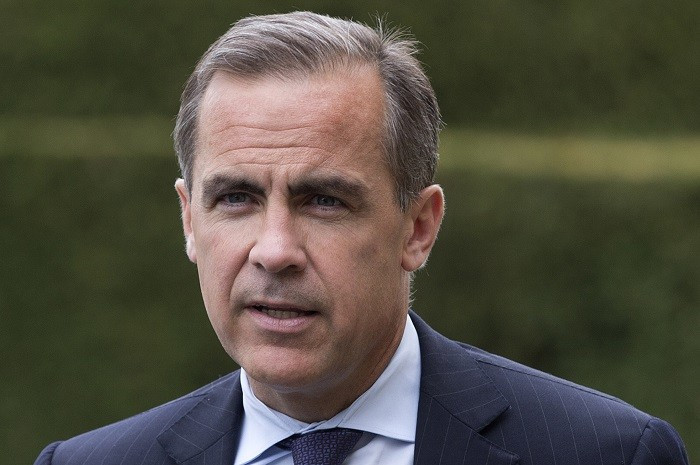Mark Carney's Unemployment Rate-Linked Forwad Guidance Brings Dangers

Bank of England Governor Mark Carney has won many plaudits for the decision to link monetary policy to the unemployment rate, but how wise is it to judge economic health by this blunt labour market indicator?
How safe is it to hike interest rates when unemployment has fallen, but only because enough hard-pressed people have successfully jostled for dismally paid half-jobs in the country's woeful jobs market?
This is the problem. If unemployment falls it does not mean that the economy is healthier and therefore monetary policy can be tightened. It may instead mean people no longer count as unemployed, but are instead in poorly paid jobs and working precious few hours.
It also does not mean the painful and ever-steepening decline in incomes will have reversed, leaving households with more disposable cash to both spend and save. It simply means more people will have been lumped over into the Office for National Statistics' (ONS) broad interpretation of what counts as employment - namely working at least one hour a week.
Zero-hours, underemployment and living costs
The Chartered Institute for Personnel and Development (CIPD) said there are as many as a million people on controversial zero-hours contracts in the UK, working each week without a contractual guarantee of minimum hours or pay.
These contracts have their place in a flexible labour market, but they are becoming increasingly commonplace as some employers exploit them to cut back on staff benefits and make it easier to fire people at a moment's notice.
Zero-hours arrangements may work for many people - those with childcare needs who have to be flexible, or students looking for a job to fit around their studies - but they do not suit every person or every job. They can engulf a person in great financial uncertainty.
How many hours will they work each week? How much can they budget for in household finances? When will the contract be terminated? This is not healthy employment, employment though it is.
What's more, the number of workers who report being underemployed - people who are in employment but want to work more hours - has shot up by a million since the financial crisis.
More and more people have been driven to self-employment because of a lack of full-time, permanent work in the labour market.
This is all well and good if you can make a decent living, but many of those who work for themselves struggle to get by at all and often still rely on the welfare system just to keep them afloat. What's more, a larger amount of self-employed people likely means smaller tax receipts for the Treasury.
Incomes are falling. They have collapsed in real terms to the sort of levels seen a decade ago. The basic costs of living have soared, from the dinner plate to the radiator.
Anti-poverty thinktank the Joseph Rowntree Foundation calculates that the basic cost of living has jumped 45% over ten years, all the while as working people take less and less home in pay. The Bank of England itself predicts that the real terms fall in wages is going to continue for months.
A rate hike
With this backdrop of tumbling incomes and a labour market full of paltry jobs that fuel underemployment, should we be hiking interest rates because unemployment has fallen below a certain level?
If the criteria were to be met, and the 'knockouts' which would void the interest rate hike had not come into play, the Bank of England would hike rates when unemployment falls to its threshold.
This would encourage people to save rather than spend. Given they already have very little disposable income to spend as it is, a rate hike would sap this out of the economy as people put money away instead.
Households would restock the savings they have depleted in recent years. They have been putting away less disposable income than they were at the height of the financial crisis, deterred by the low interest rates that yield so little in return for prudence.
ONS data shows households are now saving 4.2% of what's left after all the bills have been paid, compared to an average of 6.7% during 2011 and 2012.
The National Institute of Economic and Social Research (NIESR) forecasts that the UK economy will grow by 1.2% in 2013 and 1.8% in 2014, both 0.3% improvements on its previous estimates, but only because people are dipping into their piggy banks.
"The main cause of the improvement in the economic growth outlook is a rise in the prospects for consumer spending growth," said the NIESR, adding that it is "at the expense of household saving, rather than a consequence of rising real disposable incomes".
A rate hike, triggered by unemployment falling below a 7% rate, would be disastrous.
It would freeze the flow of consumer spending, in turn causing output to fall. This may then choke off job creation and leave firms with less cash to invest. It would reduce Treasury tax receipts and set the economy back a step, just when it looked like it was marching forward.
Perhaps monetary policymakers will simply review the base rate when the unemployment threshold is met and choose to maintain it at the record-low of 0.5%. If so, wouldn't this nobble the effectiveness of future forward guidance and raise doubts over the BoE's credibility?
Forward guidance on monetary policy may well be a good thing, but there is undoubtedly a question mark over tying it to the UK's unwieldy unemployment rate.
Shane Croucher is a senior business journalist at IBTimes UK.
© Copyright IBTimes 2024. All rights reserved.







